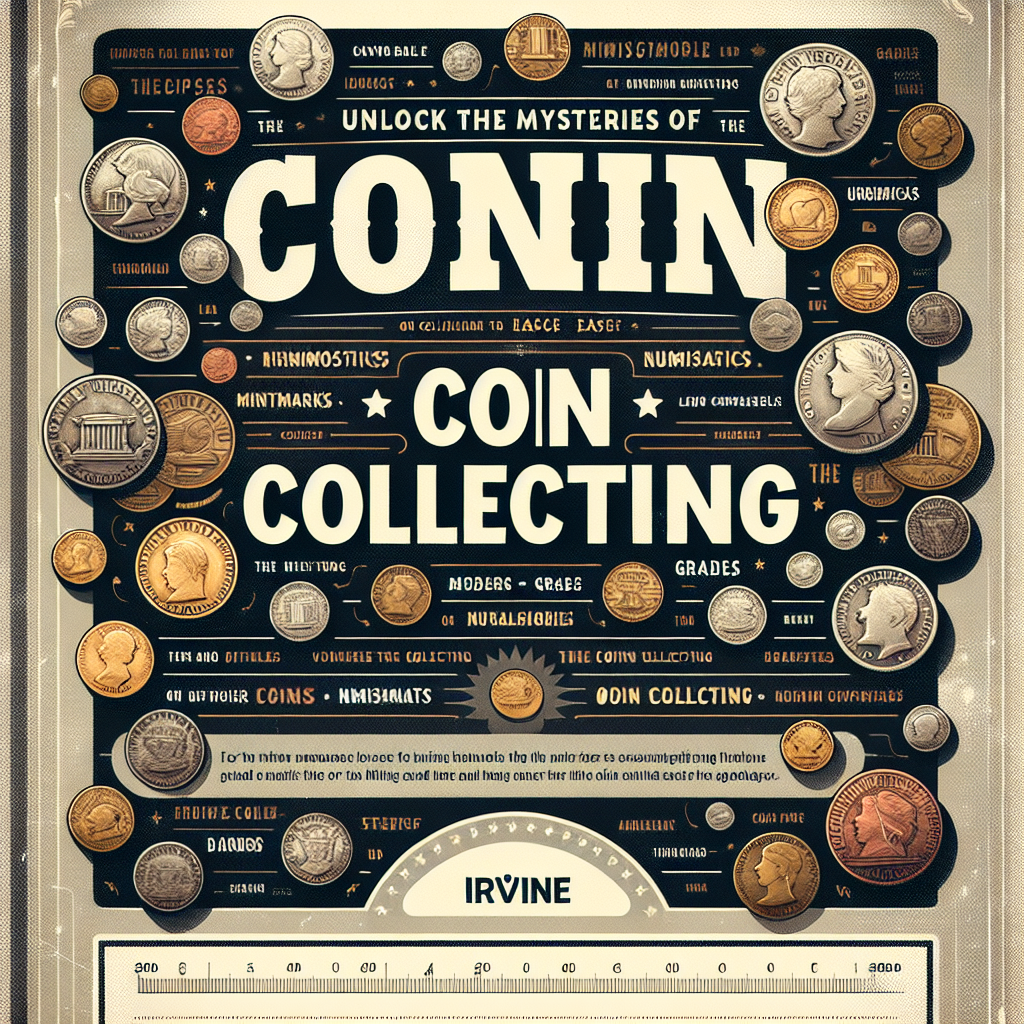

Understanding Coin Collecting Terminology: A Guide for Irvine Beginners
Why Understanding Coin Collecting Terminology is Important
Coin collecting is a popular hobby enjoyed by millions of people worldwide. It not only provides a way to preserve a piece of history, but also has the potential to be a profitable investment. However, for beginners in Irvine looking to start their collection, understanding the terminology used in the coin collecting world can be overwhelming. This guide aims to break down the key terms and concepts to help beginners navigate the world of coin collecting with confidence.
The Use of Standardized Terminology in Coin Collecting
Similar to any specialized field, coin collecting also has its own set of terminology used to describe the various aspects of coins. These terms are standardized and universally recognized by collectors and dealers alike. Having a basic understanding of these terms will not only help beginners communicate effectively with other collectors, but also make it easier to research and understand the value of their coins.
Key Terms to Know
Here are some of the key terms every beginner should know when starting their coin collecting journey: 1. Obverse and Reverse - These two terms refer to the front and back of a coin respectively. The obverse side typically features a portrait or image while the reverse displays the country of origin, year of issue, and other design elements. 2. Mint Mark - This is a small mark on coins that indicates the location where the coin was struck. Different mints have different mint marks, which can affect the value of a coin. 3. Grade - This refers to the condition of a coin and is given a letter or number grade (from 1 to 70) based on its appearance, wear, and overall condition. A higher grade usually translates to a higher value. 4. Face Value - This is the monetary value of a coin that is stamped on it by the issuing government. It is important to note that face value does not necessarily reflect the true market value of the coin. 5. Proof - This term refers to a specialized production process where coins are struck multiple times to achieve a higher level of detail and a mirror-like finish. Proof coins are often highly sought after by collectors. SubHeading 4Title:Tips for Learning and Using Coin Collecting Terminology SubHeading4Text: As a beginner, it may take time and practice to become familiar with all the terminology used in coin collecting. Here are some tips to help you along the way: 1. Research - The best way to learn about coin collecting terminology is by doing your own research. Websites, books, and online forums are great resources to help you expand your knowledge. 2. Attend Events - Attend coin shows, seminars, and auctions to interact with knowledgeable collectors and dealers. This is a great way to learn firsthand and ask any questions you may have. 3. Start Small - As with any new hobby, start small and slowly build your collection and knowledge. This will help you develop a better understanding of terminology as you go. 4. Seek Guidance - Consult with experienced collectors and dealers for advice and guidance. They can offer valuable insights and help you avoid common mistakes. SubHeading5Title:Final Thoughts SubHeading5Text: Learning the terminology used in coin collecting is an important step for beginners in Irvine to fully appreciate and understand the world of coins. With time and practice, you will become more proficient in identifying and communicating about coins and their value. So get ready to embark on your coin collecting journey and enjoy learning about all the fascinating coins out there!
As a beginner, it may take time and practice to become familiar with all the terminology used in coin collecting. Here are some tips to help you along the way: 1. Research - The best way to learn about coin collecting terminology is by doing your own research. Websites, books, and online forums are great resources to help you expand your knowledge. 2. Attend Events - Attend coin shows, seminars, and auctions to interact with knowledgeable collectors and dealers. This is a great way to learn firsthand and ask any questions you may have. 3. Start Small - As with any new hobby, start small and slowly build your collection and knowledge. This will help you develop a better understanding of terminology as you go. 4. Seek Guidance - Consult with experienced collectors and dealers for advice and guidance. They can offer valuable insights and help you avoid common mistakes.
Final Thoughts
Learning the terminology used in coin collecting is an important step for beginners in Irvine to fully appreciate and understand the world of coins. With time and practice, you will become more proficient in identifying and communicating about coins and their value. So get ready to embark on your coin collecting journey and enjoy learning about all the fascinating coins out there!





